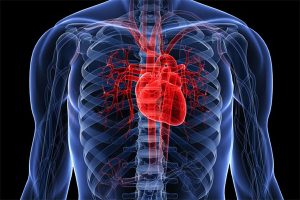Dear patient, Here are some tips to keep in mind about your medication and what happens if you do not take medications. You may take several medications to treat your illness. Below we will explain to you the categories of drugs and their side effects, as well as the way in which they are consumed.
Take a few general points before explaining the different types of drugs.
You must know that you may have to take medication for the rest of your life.
Always take your medicine at the right time and with the amount prescribed by your doctor.
If you forget, leave a member of your family to remind you of your medication.
Try to know the name and amount of your medication.
Have your medications always with you everywhere.
In case of oblivion, do not take a promise of medication twice in the next promise.
Measure your pulse and pressure daily.
Know the possible side effects of medicines and contact your doctor or nurse if you have a problem.
Avoid taking any medicine yourself without taking your doctor’s advice, especially avoid common medications such as (ibuprofen, indomethacin).
Diuretics or (diuretics)
Lazyx (furosemide), Hydrochlorothiazide, Spironolactone (Aldactone), Triamterium-H
Sodium and salt retention in the body worsens heart failure, which causes the sodium, salt and chlorine to be eliminated, resulting in excessive body water through the kidneys. So these drugs increase urine output.
Do not forget to observe a low-salt diet and fluid intake as this will make these medications more effective.
Eat these batches of medicines early in the day and in the morning.
Measure your blood pressure before taking this medicine. Because these medications may lower your blood pressure. So slowly stay calm down.
Avoid exposing the sun to direct light.
Try to compensate for your lost water by drinking water or fluids.
You can take your medication with breakfast.
Do not forget to consume potassium-rich foods like bananas, raisins, peaches, dates, figs, grapes, porridges, dried plums) with these medicines, especially lasica and hydrochlorothiazide.
Of course, two spironolactone and triamterine-H drugs cause potassium retention and there is no need to consume potassium-rich foods.
Give blood tests routinely to assess the level of electrolytes (sodium and potassium) and report their amounts to your doctor or nurse.
Digitalists
Digoxin or (Lanoxin)
This drug increases the contractile power of your heart and increases the outflow of the heart. Take care of this drug. At the same time, the therapeutic and toxic levels of this drug are very close together. That is, digoxin is said to be like The sword is two edges. Take this medicine exactly as your doctor has instructed you to take it without increasing or increasing it.
Be sure to control your pulse before taking this medicine. If your pulse is less than 50, stop using the medicine.
If you forget a meal, up to 12 hours later, you have the opportunity to use the forgotten promise. Otherwise (after 12 hours), do not forget about the forgotten meal.
Take your medicine at a certain hour in consecutive days. For example, every day at 9:00.
Keep the medicine in a cool, dry place.
Take an allergy to drugs such as anti-acid (MG-CM) and clostridine for up to an hour after taking the medication.
Do not take antibiotics (pusher) or other drugs arbitrarily without your doctor’s advice as these drugs interfere with digoxin.
If you take this medication with urine medicines, do not forget to consume potassium-rich substances (because urinary tract drugs will remove potassium from the urine.) Reducing potassium levels also increases the likelihood of poisoning with digoxin.
Report the signs and symptoms immediately. (Pulse less than 50-60, nausea, vomiting, diarrhea, abdominal pain, visual disturbances (see the green halo, blue, yellow, light white or luminous around the waist)
The earliest signs of poisoning with digoxin are nausea and vomiting.
Captopril, Enalapril, Lisinopril, Rami Peril
These drugs are recommended at all stages of heart failure. These drugs slow down heart failure and improve cardiac output, increase activity power, reduce symptoms, and need to be hospitalized, increase lifespan and reduce mortality.
These medicines may be prescribed for you despite normal and normal blood pressure.
One of the most important side effects of drugs such as caftopril and enalapril is coughing. By reporting this sign to your doctor or nurse, your medication may be replaced.
The best time to take medicine is one hour before the meal.
Stop taking anti-cough medications, colds, and anti-allergies without prescribing your doctor.
In the first few days after taking these medications, you may feel dizzy, light stomach or faint.
To minimize the effect of lowering your blood pressure, you should slowly rise and avoid excessive movement.
Control your pressure and pulse before taking medication. Control your pressure and pulse if you have symptoms after taking these medications.
Captopril may decrease blood glucose levels in diabetic patients, so monitor your blood sugar carefully in the first week if you have diabetes.
You may develop a sense of taste disorder that is resolved 2 to 3 months after the treatment.
These medications may be prescribed with caution in patients with kidney disease


